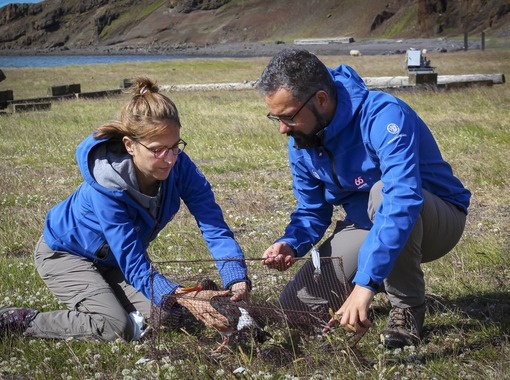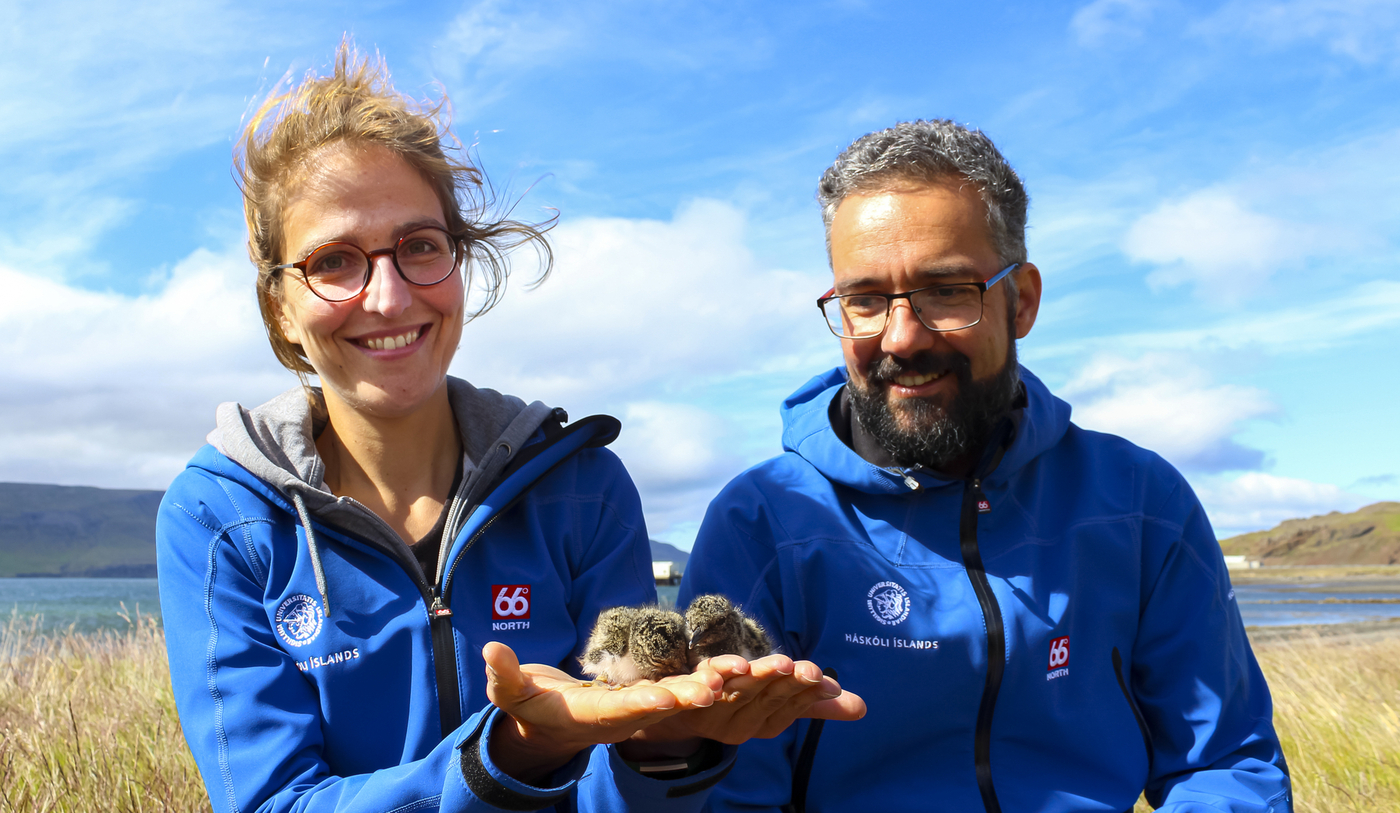Significant changes have been observed in the movements and migration patterns of animals in the Arctic region, in line with climate change. So argues an article which was published in the journal Science last week. Among the authors is Jose Alves, a visiting scholar at the University Iceland's Research Centre in South Iceland, where a very interesting research project on birds has been conducted over recent years. The article introduces an extensive collaborative network for researching the movements of animals in the Arctic region; Icelandic oystercatchers are among the species included in the database.
Jose Alves has been researching oystercatchers along with Verónica Méndez Aragón, who worked as a postdoctoral researcher at the Research Centre in South Iceland. "The study shows how movement patterns of animals in the Arctic may be changing in relation to climatic changes exacerbated in the region due to polar amplification, that is, the warming trend that is faster in the poles than elsewhere on the planet," says Jose.
When it comes to data on oystercatchers, Jose says that it appears that a higher proportion of birds now stay in Iceland over winter than previously. This is probably due to a milder climate; harsh winters have become less common. "Some individuals of these species simply do not migrate and spend winter in Iceland as well; this is increasingly common."
Jose says that the findings show that changing movement patterns in animals therefore demonstrate a response to climate change. "For example, in the migratory birds that we study in Iceland there are notable changes in their phenology, with most species arriving earlier in the Arctic to breed as springs start earlier and summers are often warmer. At the same time, warming temperatures allow expansion of agricultural land and earlier mowing. This could lead to problems for species that see natural areas converted into hayfields if mowing starts before the chicks have been raised," says Jose. "Incubation and chick growth period do not speed up much due to warmer temperatures and this may become an issue for these ground nesting species that farmers and all Icelanders love."
Jose Alves has been researching oystercatchers along with Verónica Méndez Aragón, who worked as a postdoctoral researcher at the Research Centre in South Iceland. Their study shows that it appears that a higher proportion of birds now stay in Iceland over winter than previously. This is probably due to a milder climate; harsh winters have become less common. IMAGE/Jón Örn Guðbjartsson

Birds respond to changes – humans need to do the same
Jose says that changes to our environment show that the way humans respond is important and that it is not too late to answer the signals we are getting from nature. "We urgently need to change the way we use natural resources, upon which we depend, like any other living being. Getting this work published is a very clear alert and shows that animals are already trying to respond. So why don’t we? We live on a planet with finite resources, or at least we use energy sources such as fossil fuels much faster than they are formed, so clearly these resources will run out. Iceland can tap into renewable energy sources, chiefly geothermal, and we need to push towards sustainability all over the world."
Iceland is an important breeding ground for many species
Jose says that Iceland is a very important region in which to research the impact of climate change on the biosphere. "Iceland hosts very large populations of seabirds, ducks and waders. For some waders such as the golden plover or the whimbrel, huge proportions of the global population nests in Iceland. Because we see that adults tend to be extremely fixed in their behaviours, it is the new recruits, the new generations that have the capacity to change. Iceland is a nursery for many of these birds and allowing them to breed successfully may be hugely important for how these species are able to respond to the ongoing global changes."




